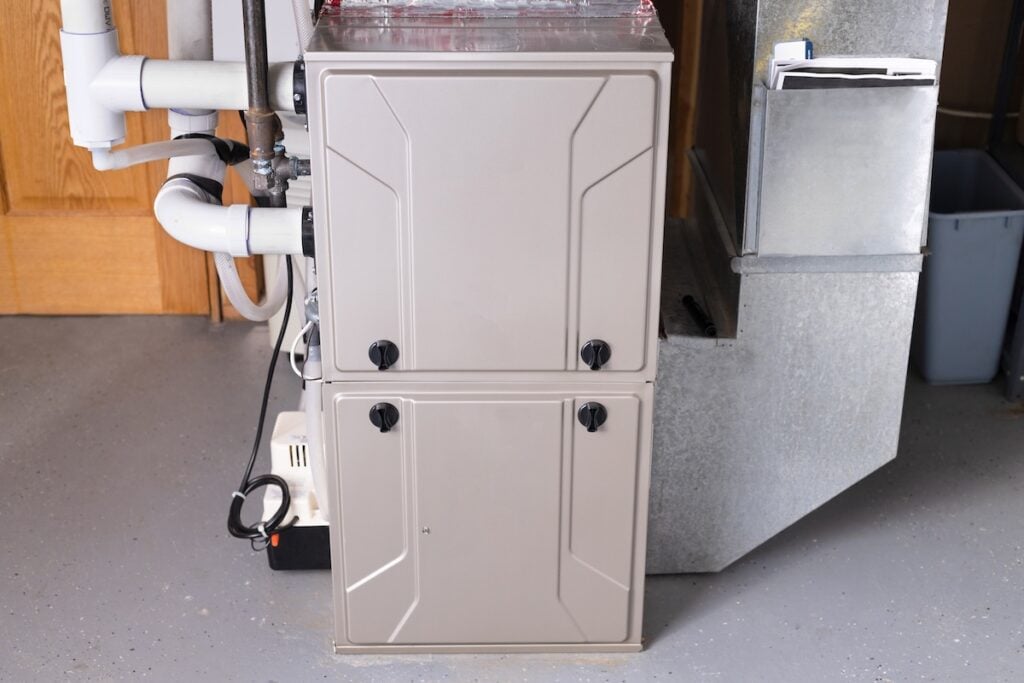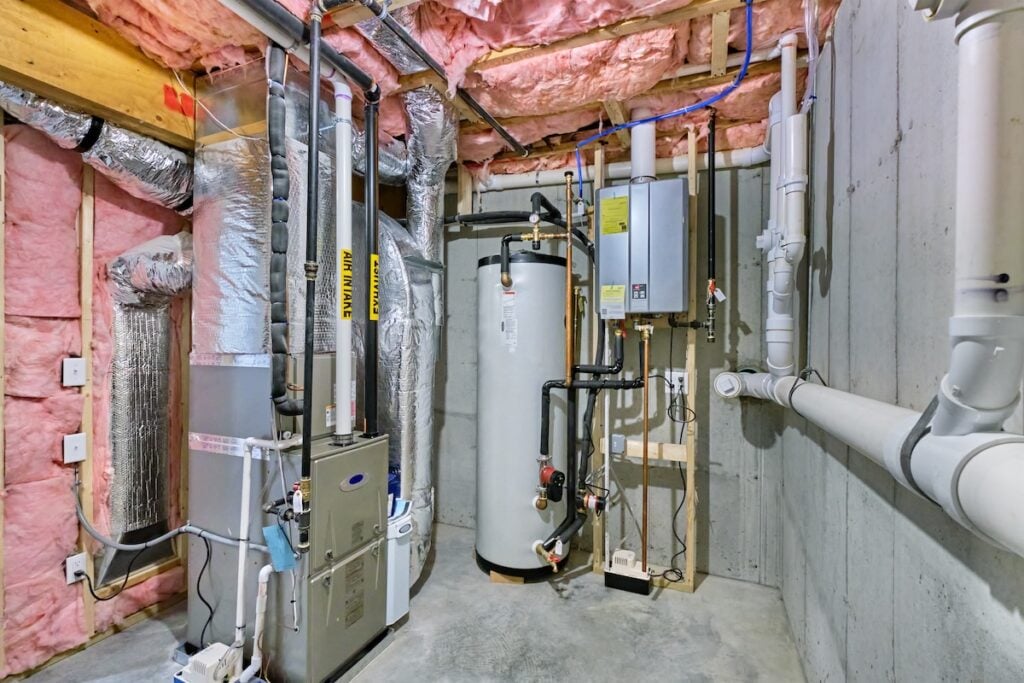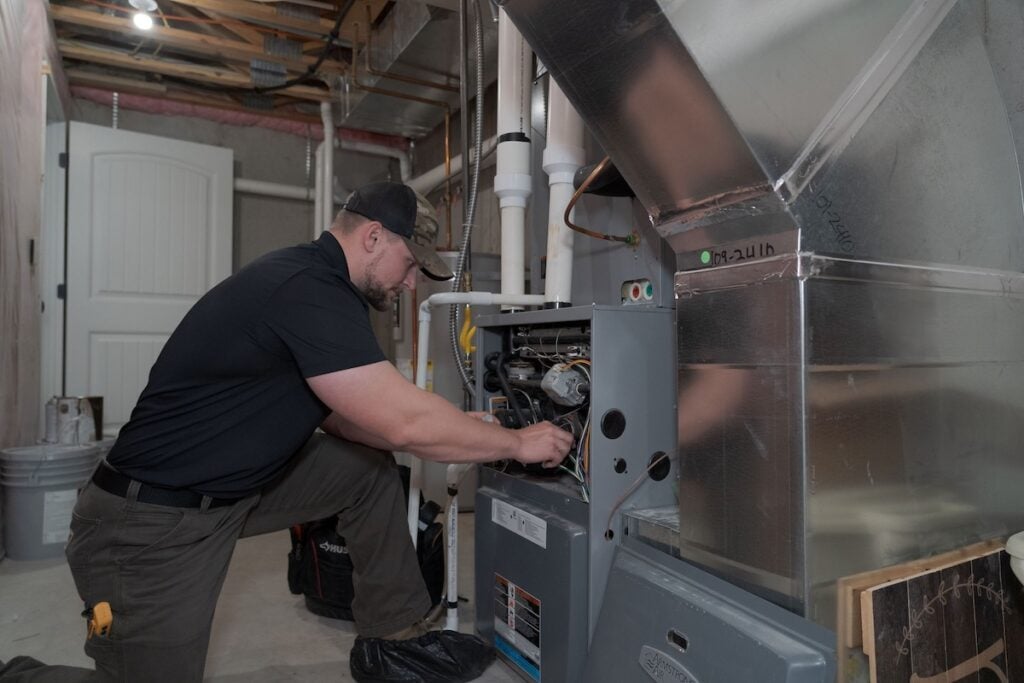What Size Furnace Do I Need? (Homeowners Guide)

Are you asking yourself, “What size furnace do I need?” If so, you’re not alone. Choosing the right furnace for your home is critical to ensuring comfort, efficiency, and proper heating during colder months. However, with so much technical jargon like “British Thermal Units” and “load calculations” to consider, it may feel overwhelming. Don’t worry—we’ve broken it down for you in this guide.
Here’s what you’ll discover in this blog:
- The importance of a properly sized furnace for your home
- How to calculate furnace size with factors like square footage and climate
- Common problems with undersized and oversized furnaces
By the end, you’ll feel confident in selecting the right size furnace for your home.
✅ Why Furnace Size Matters
Comfort and Efficiency
A furnace is one of the most critical appliances in your home, especially during the colder months. With a properly sized furnace, your home is heated efficiently while maintaining even temperatures in every room. On the other hand, an undersized furnace or an oversized furnace can lead to uneven heating and higher energy bills.
Energy Consumption and Costs
A furnace that is too large for your home will cycle on and off frequently, wasting energy and causing wear and tear. Meanwhile, an undersized furnace will struggle to maintain the desired temperature, often working overtime and consuming more fuel than necessary.
Long-Term System Longevity
When your furnace works correctly and matches the specific needs of your home, it will have fewer breakdowns and a longer lifespan. By choosing the right unit now, you can save significantly on maintenance and replacement costs later.

🤔 Key Factors to Consider When Choosing Furnace Size
Square Footage of Your Home
The size of your home is the first and most obvious factor in determining what size furnace you need. Larger homes require larger furnaces to ensure proper heating across all rooms. Here’s a general guideline:
- Homes under 1,000 square feet typically require around 30,000–50,000 British Thermal Units (BTUs).
- Homes between 1,000–2,000 square feet often need 60,000–80,000 BTUs.
- Larger homes over 2,000 square feet may require upwards of 100,000 BTUs or more.
Climate and Local Weather
Where you live significantly impacts furnace size. Colder regions demand higher BTUs to combat freezing winters, while milder climates might allow you to use a smaller furnace and save on energy costs. Local heating degree days (HDD), a measure of heating demand, can help determine the load calculation needed for your region.
Insulation Quality
The quality of your home’s insulation directly impacts how much heat escapes and how hard your furnace needs to work. Homes with poor insulation or older windows may lose heat quickly, requiring more powerful furnaces to maintain indoor comfort.
Annual Fuel Utilization Efficiency (AFUE)
When choosing your furnace, consider its AFUE rating. AFUE measures how efficiently the furnace converts fuel into heat. A furnace with a high AFUE rating, such as 90–98%, ensures that more energy directly heats your home, resulting in lower energy bills over time.
📏 Calculating the Right Furnace Size for Your Home
Here’s a simple step-by-step process to calculate the ideal furnace size for your home:

Understanding BTUs
British Thermal Units (BTUs) measure a furnace’s heating capacity. Each furnace model is rated based on the number of BTUs it produces. For example, a 100,000-BTU furnace can generate 100,000 units of heat, making it suitable for larger spaces or colder climates.
Determining Home Size in Square Feet
Start by calculating the total square footage of your living space. This includes all heated areas, such as bedrooms, living rooms, and basements (if they are heated).
Finding Your Region’s Heating Factor
Different geographic locations have varying heating requirements based on climate. For instance:
- Southern climates may only need about 30–35 BTUs per square foot.
- Northern climates may require 45–50 BTUs or more per square foot.
Load Calculation Example
Multiply your home’s square footage by the BTUs per square foot for your region. For example:
- A 1,500 sq. ft. home in a moderate climate (40 BTUs per square foot) would need approximately 60,000 BTUs (1,500 x 40).
By using this basic calculation, you can estimate your furnace size. However, professional assistance is highly recommended for precise results.

❌ Common Problems with Incorrect Furnace Sizes
Undersized Furnaces
An undersized furnace lacks the capacity to adequately heat your home, leading to:
- Uneven heating with colder rooms or areas
- Higher energy bills caused by constant overworking
- Increased wear and tear, leading to shorter system lifespan
Oversized Furnaces
On the other hand, an oversized furnace brings its own set of issues, including:
- Short cycling, where the system turns on and off frequently, leading to inefficiency
- Discomfort caused by inconsistent temperatures
- Faster degradation of mechanical components, resulting in higher maintenance costs
📋 What to Do If You’re Unsure About Furnace Size
If you’re still unsure about what furnace size you need, follow these three steps to ensure proper sizing:
- Schedule a Professional Load Calculation: A certified technician can perform a Manual J load calculation to precisely determine your home’s heating needs. This takes into account factors like square footage, insulation levels, climate, and more.
- Consider Future Needs: If you’re planning to renovate or expand your home, consult with a professional to predict future heating requirements. Upgrading or maintaining insulation can also affect your furnace’s performance.
- Choose Expert Installation: Accurate installation ensures that your furnace operates efficiently and safely. Trust experienced HVAC professionals, like those at Monarch Heating and Cooling, to guide you through the process.
💪 Monarch Heating and Cooling Is Here to Help
Choosing the right furnace size is essential for a comfortable and energy-efficient home. At Monarch Heating and Cooling, we pride ourselves on providing expert advice, quality products, and exceptional installation services. Whether you need a new furnace or just have questions, our team of experienced HVAC professionals is here to help.
Reach out today and get started on your path to a properly heated home!
Need HVAC Service?
Contact the experts at Monarch Heating and Cooling.
Call us at (406) 213-8281!
